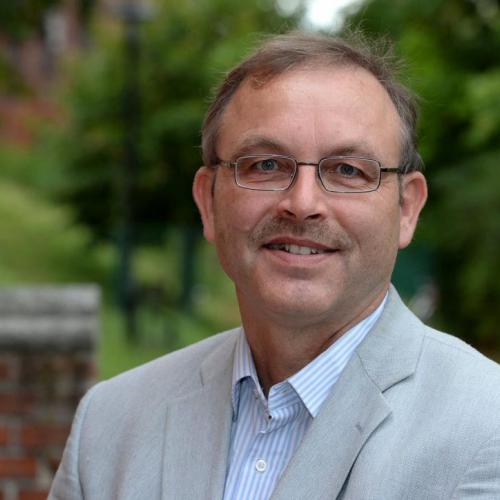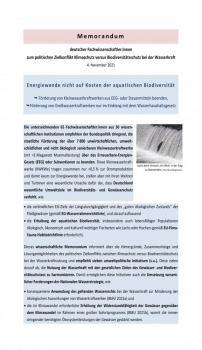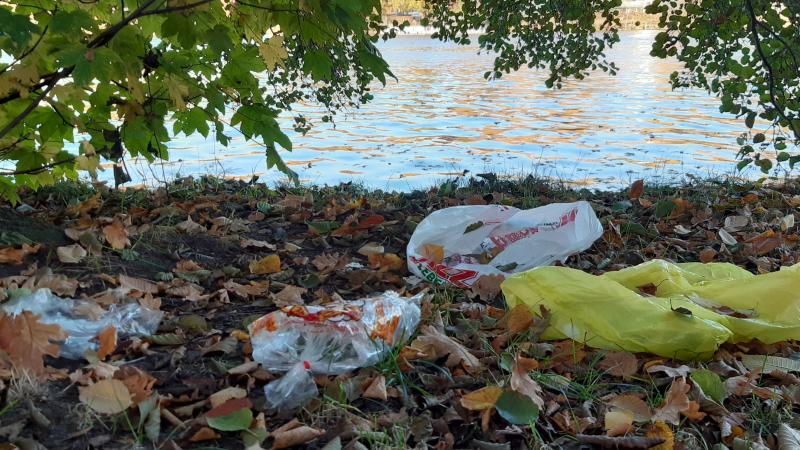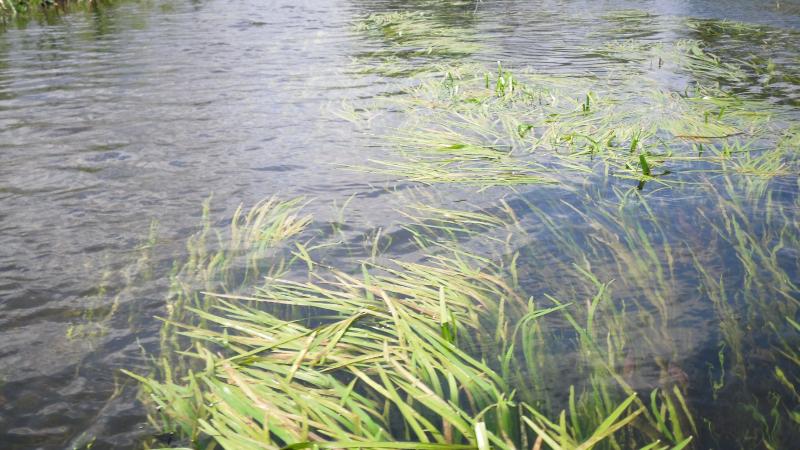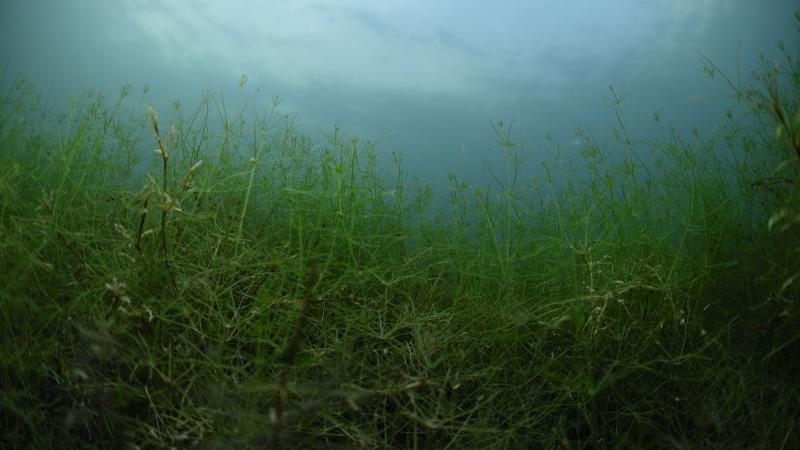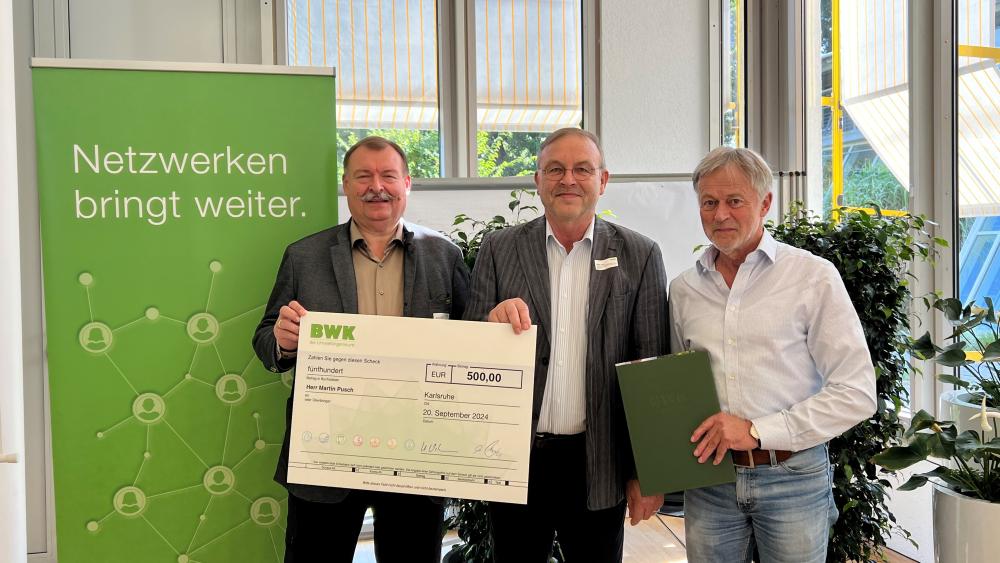
The prize was presented to IGB scientist Martin Pusch on behalf of his co-authors Janette Iwanowski, Tim G. Hoffmann and Dietmar Mehl. | Photo: BWK
The four-member research team, including Dr Martin Pusch from the Leibniz Institute of Freshwater Ecology and Inland Fisheries (IGB), showed in their study, entitled 'Einfluss von Wasserkraftanlagen auf den ökologischen Zustand von Fließgewässern in Deutschland' (Impact of Hydropower Plants on the Ecological Condition of Watercourses in Germany), that the many small hydropower plants in particular have a significant negative impact on the structure and functioning of running waters. Across Germany, more than 7,000 of these plants are affecting the ecological status of streams and rivers, hampering efforts to meet the objectives of the European Water Framework Directive. This is despite the fact that these small hydropower plants account for only 0.5% of Germany's gross electricity consumption. The authors also argue that climate change could reduce the importance of hydropower, while increasing its negative impacts.
The team analysed extensive monitoring data from the environmental authorities of all 16 German states and, for the first time, systematically compared upstream and downstream river sections in the vicinity of hydropower plants. The results are alarming: 60% of the hydromorphological indicators studied, such as flow diversity and riverbed condition, were significantly impaired. In addition, the ecological status, particularly the abundance of fish and invertebrate species, had deteriorated significantly at the sites studied, with 50% of the indicators affected.
The authors also pointed out that their results were likely to be a significant underestimate of the adverse effects of hydropower plants on watercourses, as the official test sites on flowing waters, that are only partially dammed, are often located in the free-flowing sections, and thus the effects of the damming are not assessed.
The first prize of €500, was announced today at the 39th BWK Federal Congress in Karlsruhe and presented to Martin Pusch on behalf of the whole team. BWK is a German association of engineers for water management, waste management and land improvement.
Congratulations on this recognition by the engineering community!


